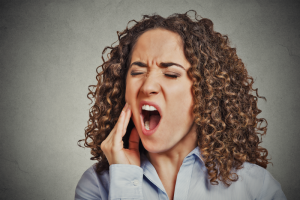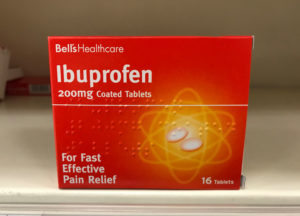 HOME
HOMEManaging Toothache during self isolation
If you are self isolating and unable to leave the house then the last thing you want is to develop toothache. The practice is open for emergencies but we recommend everyone, especially those over 70 or at increased risk of severe illness due to COVID-19 follow stringent social distancing measures. If you have symptoms of Coronavirus (new persistent cough and/or fever you should not attend the practice).
If you are not able to see us, there are a few things you can try to manage the pain until you can. It is unclear at this point when normal service will resume. If you have a swelling on your face or difficulty swallowing, this requires urgent professional attention so don’t be afraid to contact us for advice.

What counts as a dental emergency?
Urgent Dental Treatment:
Go straight to A&E:
Non-Urgent:
Pain from teeth:
Painkillers: Anti – inflammatories (like ibuprofen) can help reduce sensitivity from teeth. Combining paracetamol and ibuprofen has also been shown to be effective.
There is currently no strong evidence that drugs like ibuprofen could make COVID-19 worse.
If you have no coronavirus symptoms, carry on taking ibuprofen as normal.
So, until we have more information, take paracetamol to treat symptoms of coronavirus, unless you doctor has told you paracetamol is not suitable for you (Updated 20th March 2020).
Painkillers should always be taken in accordance with instructions on the packet. Taking too many tablets, or taking medications incrrectly will not improve your symptoms, and can cause serious stomach and liver injury which can be life threatening.


Toothache:
If the toothache is extremely sensitive to hot or cold, antibiotics will not help. The decay must be removed and filled.
These home measures may help make symptoms manageable until care can be assessed.

Wisdom teeth:
Wisdom tooth pain is usually due to inflammation of the gum over the erupting tooth, which can be worsened by trauma from biting.

Ulcers:
Although painful, most ulcers will heal within 7 to 10 days. Non-healing ulcers/oral lesions present for more than 3 weeks should be assessed by a dentist or doctor. To treat, try:
If your dentures are rubbing and causing an ulcer, you can try using a denture fixative, not only to soften the denture against the gum, but to secure the denture in place. Sharp edges can be removed with an emery board. Also, try leaving your dentures out as much as possible to allow the ulcer to heal.
Bleeding gums:
Bleeding from gums is not a dental emergency. Bleeding gums are usually due to gum disease, and will not stop until brushing improves. Brush 2x daily with fluoride toothpaste for 2 minutes, concentrating especially on the areas that are bleeding. Use floss or a tepe every day to clean between your teeth.
If you have difficulty swallowing, swelling in your face or cheek, or difficulty opening your mouth, call your dentist. You may need antibiotics if the infection is spreading.
Lost crown:
If you would like any advice, we are available to offer advice over the phone. Please call 0121 550 6958 or 0737 550 6958.
Back to Blog| Cookie | Duration | Description |
|---|---|---|
| cookielawinfo-checkbox-advertisement | 1 Year | The cookie is set by GDPR cookie consent to record the user consent for the cookies in the category "Advertisement". |
| cookielawinfo-checkbox-analytics | 11 months | This cookie is set by GDPR Cookie Consent plugin. The cookie is used to store the user consent for the cookies in the category "Analytics". |
| cookielawinfo-checkbox-necessary | 11 months | This cookie is set by GDPR Cookie Consent plugin. The cookies is used to store the user consent for the cookies in the category "Necessary". |
| cookielawinfo-checkbox-other | 1 year | Set by the GDPR Cookie Consent plugin, this cookie is used to record the user consent for the cookies in the "Other" category . |
| viewed_cookie_policy | 11 months | The cookie is set by the GDPR Cookie Consent plugin and is used to store whether or not user has consented to the use of cookies. It does not store any personal data. |
| Cookie | Duration | Description |
|---|---|---|
| _ga | 2 Years | This cookie is installed by Google Analytics. The cookie is used to calculate visitor, session, campaign data and keep track of site usage for the site's analytics report. The cookies store information anonymously and assign a randomly generated number to identify unique visitors. |
| _gat_gtag_UA_135273458_1 | 1 Minute | This cookie is set by Google and is used to distinguish users. |
| _gid | 1 Day | This cookie is installed by Google Analytics. The cookie is used to store information of how visitors use a website and helps in creating an analytics report of how the website is doing. The data collected including the number visitors, the source where they have come from, and the pages visted in an anonymous form. |
| vuid | 2 years | Vimeo installs this cookie to collect tracking information by setting a unique ID to embed videos to the website. |
| Cookie | Duration | Description |
|---|---|---|
| _fbp | 3 months | This cookie is set by Facebook to deliver advertisement when they are on Facebook or a digital platform powered by Facebook advertising after visiting this website. |